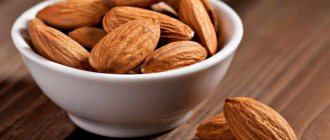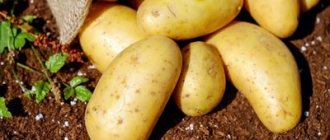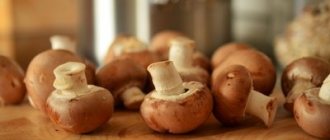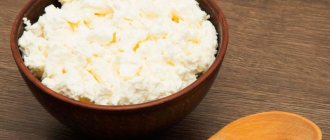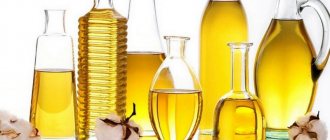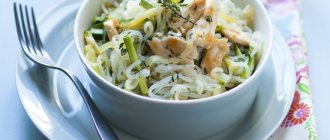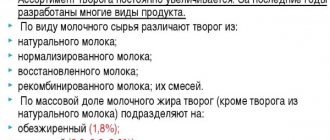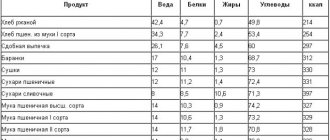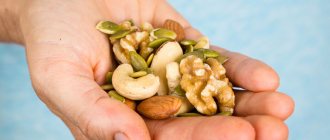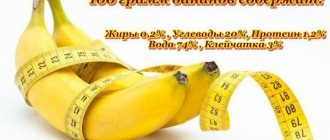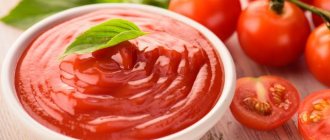Basic properties and composition
Popcorn is a good source of dietary fiber. Fiber is a type of carbohydrate that the body cannot fully digest. Due to this, food digestion slows down, so the feeling of fullness lasts longer. The recommended daily fiber intake is 25 g for women and 38 g for men.
Studies have found that people lost weight by increasing their daily fiber intake to just 19 grams. This means that eating popcorn will help meet your daily fiber needs and thus help you lose weight. In addition, consuming an airy treat reduces the likelihood of constipation, and the intestinal tract will become less susceptible to the influence of carcinogens and toxins.
Popcorn contains antioxidants - substances that protect the body's cells from damage that leads to disease. Polyphenols contained in popcorn reduce blood pressure, reduce the risk of cancer, neurodegenerative and cardiovascular diseases.
The product contains:
- a small amount of B vitamins;
- folic acid;
- magnesium;
- manganese;
- phosphorus;
- zinc;
- copper;
- gland.
Vitamin B1 (thiamine) is important for the functioning of the nervous system, brain, muscles, heart, stomach and intestines. Vitamin B2 helps the skin stay young and healthy. Vitamin B3, or niacin, lowers the level of “bad” cholesterol and reduces the likelihood of heart disease.
Useful properties of popcorn
It is worth noting right away that there is much more benefit in corn than harm. You just need to use common sense and not overdo it with portions, just like when eating any other high-calorie foods. Otherwise, you can cause harm to yourself, which consists in obstructing the functioning of the gastrointestinal tract.
- Corn contains a large amount of antioxidants - polyphenols, which prevent premature aging.
- Corn contains a large amount of fiber, which helps improve digestion and quickly satiate, preventing blood sugar levels from rising. These beneficial properties and substances are contained in the husk.
- Popcorn contains large amounts of vitamins B1 and B2, magnesium and potassium. In addition, the product contains sodium and potassium, which protects bone tissue, nails and hair.
- The starch itself from the product contained in popcorn also has benefits. It nourishes nerve cells and promotes the growth of muscle tissue. Starch also contains vitamins B, PP and E. Since corn is a carbohydrate product, it charges the body with energy.
If you consume corn in moderation, it will only benefit the body.
Calorie content of the product
Popcorn is relatively low in calories and has a low energy density. This means that popped corn contains a lot of air, which helps you feel full faster while eating less.
100g of popcorn contains 387 calories, 13g of protein, 78g of carbohydrates and 5g of fat. This amount of popcorn also contains 15 grams of fiber, making popcorn one of the best sources of dietary fiber in the world.
This fluffy product has relatively few calories per large serving. However, the calorie content of the product increases after adding butter, cheese, caramel or any other additive. For example, 100g of buttered popcorn will contain 774 calories (2 times more than an equivalent serving of unbuttered popcorn) and 25g of fat (5 times more than unbuttered popcorn).
The glycemic index (GI) reflects the effect of carbohydrate-containing foods on blood sugar levels. The higher the GI of a food, the more likely it is that your blood sugar levels will rise after eating it. Popcorn has a glycemic index of 72. Therefore, it is recommended to consume the product in moderation or in combination with foods that have a low GI (peanuts, apple or raw carrots) to reduce blood sugar levels.
Is popcorn harmful?
If we say that popcorn prepared at home will not cause much harm, then popcorn, which is made in production or widely sold in cinemas, is still not so harmless. Corn for popcorn, as a rule, is grown with the help of fertilizers, and in the process of manufacturing the product itself, additives, various dyes, flavor enhancers are used, and oil is used several times. The usefulness of such a submissive one is questionable.
If you are following a diet to lose weight, your body is already exhausted and weakened, and popcorn can provoke an exacerbation of chronic diseases. If you have problems with the gastrointestinal tract, we strongly recommend not to indulge in popcorn, even homemade, since the fiber it contains will hit the weak points in the body even harder.
If you pay attention only to the composition of the product itself, you will be convinced that it cannot harm the body. Eating popcorn is possible for many diseases, such as diabetes, pancreatitis, gout, cholecystitis, gastritis. For all these diseases, split meals are needed 5-6 times a day, and in this case, popcorn can be an excellent snack. Natural popcorn can help relieve constipation. Thanks to the properties of fiber, it acts as a broom for the intestines and promotes cleansing. But, you definitely need to pay attention that the popcorn is without any additives or preservatives, so that the benefit does not turn into harm.
To summarize, we can say that it is possible to consume popcorn as part of your diet, but in moderation. You shouldn't eat popcorn every day; rather, you can use it as a snack. It is recommended to eat no more than 70-80 g per day, in total no more than 200 g per week. We recommend consuming this snack without additives or flavorings, and it is better to cook it yourself at home. Consuming such a product will only bring benefits to the body. If painful symptoms appear, it is better to stop eating such a product.
Is it possible to eat popcorn on a diet?
Properly prepared popcorn is a low-calorie snack that is healthy to eat while on a diet. Due to its low calorie content, low energy density and increased nutritional value, eating popcorn will help you lose weight.
There are many ways to prepare a simple and tasty airy treat at home without harming your diet. One of the easiest ways to make popcorn delicious is to cook it with olive oil and sea salt. Add 2 tsp. olive oil into the bowl with the popcorn - this will add flavor to the dish. Add a pinch of sea salt and pepper to give the popcorn a kick.
If you like to experiment, try using a flavored oil, such as garlic rosemary or basil olive oil. Make your homemade fluffy treat even healthier by adding chopped herbs: chop some fresh dill and mix with 1 tsp. lemon juice, sea salt and 1 tbsp. l. olive oil. If you want something sweet, drizzle the finished product with natural nut butter or sprinkle with dark chocolate shavings.
Another option for cooking popcorn on the stove. Heat 2 tsp. olive oil in a deep saucepan and add 3 corn kernels. If the shell of the grain breaks under steam pressure, then it’s time to add the remaining grains. Stir them and cover the pan with a lid. As soon as popping noises begin to be heard, the pan must be removed from the heat. Place the finished popcorn in a bowl and add 1 tsp. grated Parmesan cheese and your favorite dried herbs. Oil will increase the calorie content of the dish, but this cooking method also corresponds to a healthy diet.
A little history
Popcorn has been known to mankind for a long time. This variety of corn comes from America. Geologists have found remains of corn pollen in hard rocks that have been determined to be very ancient. To be more precise, the age of such pollen is about 80 thousand years. The ability of the product to explode when exposed to high temperatures was discovered by the Indians.
If we talk about a more modern way of cooking corn, the idea of this method of cooking belongs to Charles Critors. It was he who invented a special machine for making popcorn and called it a popper. This invention was made in 1885 . However, to prepare the product at home nowadays, it is not at all necessary to purchase a special machine. For cooking corn at home, a type of microwave corn became commercially available in 1984. This popcorn is produced in special packaging that prevents the grains from flying all over the microwave.
Contraindications and harm
Consumption of puffed corn has several contraindications:
- allergic reactions to corn;
- health problems (ulcers, gastritis, colitis), in which you need to limit your fiber intake.
Despite the health benefits of popcorn, the way in which it is popped can greatly affect the quality of the final product. Popcorn sold in movie theaters and stores is made with large amounts of sugar and salt, trans fats, food additives and artificial flavors. This chemical composition increases the calorie content of the product and poses a potential health risk.
A large amount of salt in the product leads to fluid retention in the body and high blood pressure, which in turn leads to kidney disease, stroke and heart attack. Sweet popcorn is oversaturated with sugar, which means it is high in calories and greatly overloads the pancreas.
Store-bought popcorn with butter is a harmful product. The composition contains harmful trans fats, and the product also contains a large number of calories (a serving includes about 1200 kcal). Packages of ready-made popcorn contain a number of additives that can be harmful to health. The harmful effect of the flavor is that there is a risk of getting an ulcer or gastritis.
Reviews of those losing weight
Olga, 27 years old, Moscow
Homemade popcorn made with olive oil is amazing! Just don't add butter or sugar to it. For me, this is an excellent replacement for unhealthy potato chips and salted nuts.
Rosa, 35 years old, Ufa
I’m on a diet and tried to include popcorn in the menu. On the plus side, I note that the price is affordable for different categories of the population, including state employees, students and retirees. The downside is that I lost only two kilograms in four days, although I expected more.
Olesya, 28 years old, Izhevsk
I love corn, I decided to introduce popcorn into my diet for a week, it was enough to lose almost 3 kg, the result is excellent. The advantage of popcorn is that it helps to cleanse the body well and cope with constipation, if any. I didn’t feel hungry because... I ate popcorn during snacks. But it would hardly have lasted more than a week.
Popcorn is a favorite treat for many that people do not want to give up even during strict diet programs. This is especially true for low-carb diets, when the daily carbohydrate intake is sharply reduced from 225–325 grams per day to 50–150 g.
However, it is not always possible to get a sharply negative answer to the question: is it possible to have popcorn on a diet? There are a number of exceptions and diet recipes that allow you to combine popcorn and diet.
Popcorn and diet: what are the benefits and harms?
Popcorn is a product that is loved not only by children, but also by adults. This is what people most often take with them to the cinema, it is available in many entertainment centers, and is offered in fast food restaurants. It is made from a special type of corn that needs to be cooked. When deciding whether you can eat popcorn on a diet, you should study its properties and effects on the body.
Valuable qualities of popcorn
Product contains:
- Starch is what many nutritionists blame for causing people to gain weight quickly. These are light carbohydrates that are very quickly absorbed by the body and converted into energy. If there is a lot of it, it will transform into fat deposits.
- Water - it evaporates quickly, which explains the low weight of the product after cooking.
- Polyphenols – these substances are responsible for preventing the aging process of cells in the body. These are natural antioxidants that a person needs to protect against external factors.
- Fiber is responsible for normalizing the digestion process and removing toxins from the body.
- B vitamins - they are necessary for the normal growth and health of nails and hair, and are responsible for the condition of the skin and central nervous system.
- Microelements. Among others, potassium and iron, zinc and sodium, phosphorus, etc.
Nutritionist names foods that won't make you fat
Photo: depositphotos/ArturVerkhovetskiy
Nutritionist Elena Solomatina told Moscow 24 what foods can be eaten in any quantity, and whether there are foods with negative calories.
According to the specialist, almost any vegetables can be eaten without restrictions. This list can include cucumbers, zucchini, celery and herbs, she explained.
“They all consist mostly of water, so they have very little calorie content and a low glycemic index,” the expert noted.
Moreover, if you overeat vegetables that are high in fiber, this can cause bloating, flatulence and other unpleasant sensations, she pointed out. That is why the doctor advised not to consume kilograms of them.
At the same time, fruits, which are also low in calories, cannot be eaten in unlimited quantities, the nutritionist emphasized. This is especially true for those people who already have a tendency to be overweight, says Solomatina.
When blood glucose levels rise, large amounts of insulin are released, which stores fat. Because of this, you should not overeat on blueberries, watermelons and other sweet berries and fruits. Elena Solomatina
nutritionist
The specialist added that there is a myth about foods with negative calorie content: supposedly the body spends more energy processing them than it receives from food. According to her, such low-calorie food can only level out its calorie content, but not go negative.
“It is impossible to say that this is precisely negative calorie content, when we can eat and lose weight. We can definitely say that vegetables and greens help us lose weight because we eat less of the rest of the food. And they also suppress the production of ghrelin, the hunger hormone,” the nutritionist emphasized.
For example, the body also needs a lot of energy to digest meat, but it cannot be called a product with a negative calorie content. This is precisely why we sometimes don’t want fatty meat dishes in the summer, since digestion occurs with the release of energy - heat. Elena Solomatina
nutritionist
The interlocutor of Moscow 24 noted that when eating food with vegetables and herbs, its glycemic index decreases. Thus, the rate of fat deposition is reduced by lowering glucose and insulin levels, Solomatina concluded.
Earlier, endocrinologist Oksana Dyukareva told how to get rid of excess fat. According to her, for this it is necessary to reduce the calorie intake by 500–1,000 kilocalories and increase the amount of whole grains and fiber in the diet. Also, avoid eating fast food, processed foods, and foods high in sugar.
When and how can you eat popcorn on a diet?
Popcorn on a diet is allowed in exceptional cases when:
- The program allows you to consume more than 600–800 kcal per day. Strict diets completely exclude the use of the product in the program.
- Popcorn replaces bread or crispbread. Often it is tasty and not very high in calories, especially if you keep your appetite within limits and do not overeat
- A non-caramelized product is used.
- It is necessary not only to lose weight, but also to normalize intestinal function and solve the problem of constipation.
Improving digestion and not gaining extra pounds with popcorn on a diet is a solvable task if the total number of calories consumed does not go beyond 1000–1100 per day.
How to use popcorn on a diet?
When choosing a weight loss program, you should check with your doctor whether you can eat popcorn on a diet in the evening or whether it is better to include the product at other times of the day.
It is recommended to cook this product in the oven or in a pan on the stove. Do not use a frying pan with oil or a microwave oven for cooking. It’s also not worth buying a finished product; it’s better to cook it yourself from the corn you bought at the farmers’ market.
You can eat popcorn on a diet according to this scheme:
- Breakfast – vegetables with scrambled eggs. Tea or coffee without sugar.
- Second breakfast – popcorn, unsweetened and unsalted. Use the product for lean snacks – without oil or seasonings.
- Lunch - soup with vegetables in water, boiled fish (150 g), vegetable salad, sprinkled with ½ tsp. olive oil, compote or tea.
- Afternoon snack – fruit or use a piece of popcorn.
- Dinner – stewed vegetables with a small piece of boiled fish or meat.
Recipe for diet cream soup with popcorn
Is it possible to eat popcorn while dieting? The product can be consumed in properly prepared form. One option is cream soup. To prepare it, you should:
- Use a large onion, peeled and cut into small cubes.
- Add 250 g of canned corn to the onion and simmer for another 5 minutes.
- Pour the mixture with vegetable broth - 350 ml. Add chopped vegetables, choose them according to your own taste.
- Lightly salt everything and cook for 20 minutes over low heat.
- Dilute the finished mixture with liquid from a can of corn - add to taste.
- Blend all the contents in a blender, and then add 100 ml of hot cream to the liquid.
Before serving, sprinkle everything with cooked popcorn - use 100 g. Do not add additional salt to the product, it will be used instead of bread!
Popcorn diets: can you eat this product?
Of course, you can eat popcorn while dieting. But you don’t have to buy it, but make it yourself. It's best to cook popcorn in a pan on the stove rather than in the microwave. There is no special diet for popcorn, but you can eat this product for second breakfast or afternoon snack, that is, have a snack and still adhere to proper nutrition.
And proper nutrition involves eating healthy foods - cereals, meat and fish, eggs, fermented milk and dairy products, vegetables and fruits, bread. That is, low-fat and not very high-calorie foods, excluding baked goods, sweets, and fast food.
Here is a sample diet menu:
- breakfast - omelet with vegetables or porridge and tea;
- snack - popcorn;
- lunch - vegetable soup, fish and salad, compote;
- afternoon snack - popcorn or fruit;
- dinner - stewed vegetables and cottage cheese.
The dishes can be anything, the main thing is to choose healthy ones. And popcorn should be used exclusively for snacking, and not as a snack after the main course. In principle, with any diet you can snack on this product if snacks are provided.
Calorie content and chemical composition of popcorn
This product contains starch, which makes it nutritious. After cooking, the nutritional value of popcorn increases when losing weight, but the weight of the product, on the contrary, decreases. 100 g of popcorn contains 80 g of carbohydrates. Other ingredients included:
The calorie content of 100 g of product is 86 kcal, so you can consume popcorn in large quantities without harming your figure.
The nutritional value of popcorn depends on the presence of additives, sugar and vegetable oil. For example, caramel contains 50 kcal more.
Is it possible to eat popcorn while losing weight?
Popcorn can be included in various nutrition plans. If you make corn yourself, the product will be healthy and low in calories. If you have any doubts, you should contact a nutritionist and find out whether you can eat popcorn on your diet and in what quantities. If you do not follow the recommendations of a specialist, you can gain weight even more, especially if you consume a product that contains caramel, sugar and other high-calorie additives.
You can eat popcorn on a diet, but it must be natural. To do this, it is advisable to prepare it yourself, without adding sugar and vegetable oil.
Popcorn can replace regular bread. This product goes well with cheeses, seeds, spices and dried fruits. As a result, the snack will be more tasty and healthy.
It is recommended to use a fresh or slightly salted product.
